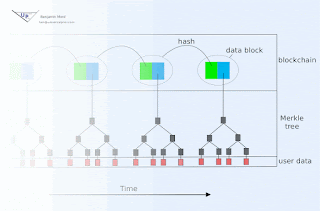However futile they may be, grand predictions are fun things to attempt. So... what is the future of money?
I think the future shape and role of cryptocurrency will take some decades to emerge. I think the world will eventually settle on a small handful of cryptocurrencies, with one having a clear dominance over the others. I give this scenario about 60% odds, but I have little idea how long it will take to manifest. I think it will emerge first in politically unstable or fiscally undisciplined countries, and in countries who today use fractional reserve on any fiat that is not under their control. It will next become the global standard for international trade. whereupon the US will suffer for having lost its unique position as controller of international trade money. But other countries will not mind the loss of America's privileged position, and this improved fairness will partially motivate the switch. Once that transition becomes evident, the US will suddenly regret its debt. We might suddenly and dramatically have to inflate our way out of that debt, which will initiate the switch of the US, and then the other stable countries, to finally adopt the dominant cryptocurrency. If the US Fed is wise, it might attempt to delay that switch by issuing its own central bank cryptocurrency that is very specifically NOT offered as payment for legacy US debt and whose value will therefore be allowed to float, but the success and duration of that is hard to predict.
The reason I think one cryptocurrency will dominate is due to the simple and numerous network effects. But which shall it be? I think the value will be initially derived from bitcoin, yet it will run on a different yet-to-be-invented blockchain that does not use proof of work. Conceivably, the transition off the legacy blockchain onto another will be facilitated and encouraged by the core devs of the legacy technology, but possibly, it will not be. (segwit2x was not it however, nor would the new blockchain look anything like segwit2x, from a technical perspective.)
The transition from the legacy blockchain to the new one(s) will be initiated via some sort of sidechain / cryptographic two way peg strategy, but with the peg eventually and intentionally severed so as to retire the old blockchain. The retirement of the old chain will be necessary so as to separate the money supply from the proof of work.
It is possible that a gradual transition as described above, which starts out looking like a pegged sidechain and ends up looking like a hard fork after completion, is not what will occur. Possibly, the community will just jump straight to the in-your-face hard-fork strategy, as 2017 saw more than once. But I hope not, because contentious hard forks, sans smooth transition mechanisms, are irresponsible and unnecessary.
History makes fools of most forecasters, and history may treat me no more kindly than others. But perhaps the odd fellow exists out there somewhere who would enjoy reading this, as much as I did writing it. Whatever the future holds, we will want to be nimble.
Subscribe to:
Post Comments (Atom)
Blockchain animation
Blockchain technology offers society a new capability: sharing business records whose tamper resistance can be trusted more, and for a lo...

-
In 1976, Nobel laureate Friedrich Hayek proposed that money should be denationalized, such that privately issued moneys would compete over t...
-
The recent Ethereum hack involving a smart contract bug illustrates a type of vulnerability that we'll be seeing a lot more often. One...
-
Blockchain technology offers society a new capability: sharing business records whose tamper resistance can be trusted more, and for a lo...

No comments:
Post a Comment